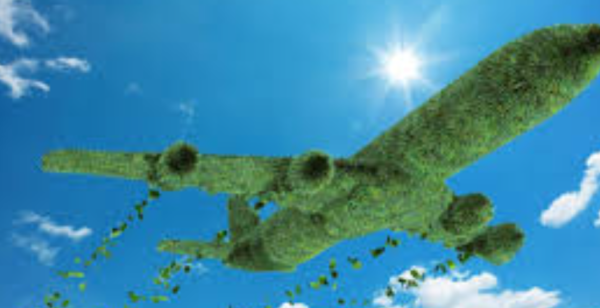 Dr. Seema Javed
Dr. Seema Javed
Collecting used cooking oil (UCO) and using it for sustainable aviation fuel(SAF) for a greener air travel which will reduce the impact that aviation industry has on plante is the lofty dream of today’s world.
The aim is to make aviation more environmentally friendly.SAF is a biofuel that can be blended with conventional jet fuel, offering a cleaner alternative with a lower carbon footprintThe aviation industry is actively exploring sustainable aviation fuels (SAF) as a key strategy to reduce its carbon footprint.
The International Civil Aviation Organization (ICAO) has established a framework for SAF, aiming to reduce CO2 emissions in international aviation.
Depending on the feedstock and production method, SAF can reduce carbon emissions by up to 80% over its lifecycle compared to conventional fuel. SAF is designed to be a “drop-in” fuel, meaning it can be blended with existing jet fuel and used in current aircraft without requiring significant modifications to engines or infrastructure.

In 2023, emissions from international plane travel accounted for 2.5% of the world’s energy-related carbon emissions. As air travel increases, and other sectors are more easily able to decarbonise, that share is set to grow.When made from waste such as UCO, rather than agricultural commodities like soy or palm oil, backers say SAF can slash planet-heating emissions by up to 80% over kerosene jet fuel, without taking up land that would otherwise be used for food crops, or fueling forest destruction.
Europe’s green aviation fuel refineries are boosting output because of new requirements by the EU and the UK for planes to use more SAF in the coming decades. From the start of this year, fuel supplied to airports across Europe needs to contain at least 2% of SAF, with targets rising gradually over the next 15 years, putting huge strain on tight global supplies.
A collection point in Malaysia for discarded cooking oil has been set up. Volunteers can get upto 21 $ per litre of used cooking oil.Evergreen Oil & Feed, company running the collection centre is a supplier to leading European SAF producers including Spain’s Repsol, UK-based Shell and Finland’s Neste.
Malaysia is among the world’s leading suppliers of both UCO and virgin palm oil.
Airline companies such as International Airlines Group (IAG) – the parent company of British Airways, Iberia, Vueling, Aer Lingus and LEVEL – get green certification from jet fuel providers, for the SAF that they buy.
An emerging SAF industry is gearing up. SAF, derived from renewable sources, can significantly reduce greenhouse gas emissions compared to conventional jet fuel. While SAF offers a promising path towards decarbonization, challenges remain in terms of production scale and cost. SAF is crucial for shrinking aviation’s carbon footprint, according to industry body the International Air Transport Association (IATA), and is expected to account for 65% of emissions reductions by 2050, when the sector has committed to reaching net zero.
 Jubilee Post News & Views
Jubilee Post News & Views





